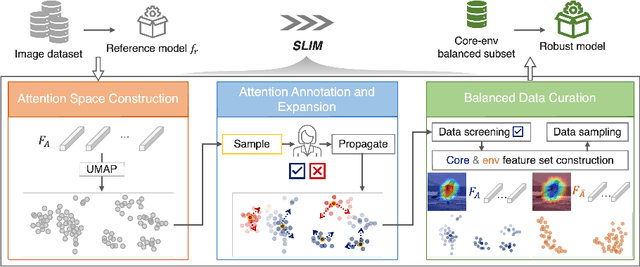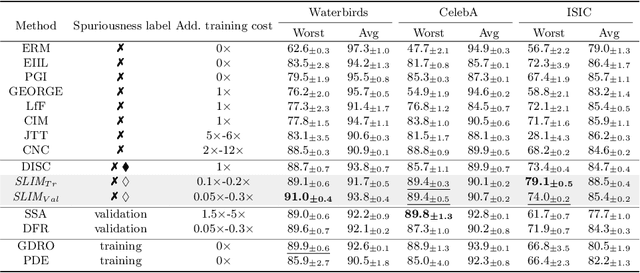SLIM: Spuriousness Mitigation with Minimal Human Annotations
Paper and Code
Jul 08, 2024



Recent studies highlight that deep learning models often learn spurious features mistakenly linked to labels, compromising their reliability in real-world scenarios where such correlations do not hold. Despite the increasing research effort, existing solutions often face two main challenges: they either demand substantial annotations of spurious attributes, or they yield less competitive outcomes with expensive training when additional annotations are absent. In this paper, we introduce SLIM, a cost-effective and performance-targeted approach to reducing spurious correlations in deep learning. Our method leverages a human-in-the-loop protocol featuring a novel attention labeling mechanism with a constructed attention representation space. SLIM significantly reduces the need for exhaustive additional labeling, requiring human input for fewer than 3% of instances. By prioritizing data quality over complicated training strategies, SLIM curates a smaller yet more feature-balanced data subset, fostering the development of spuriousness-robust models. Experimental validations across key benchmarks demonstrate that SLIM competes with or exceeds the performance of leading methods while significantly reducing costs. The SLIM framework thus presents a promising path for developing reliable models more efficiently. Our code is available in https://github.com/xiweix/SLIM.git/.
 Add to Chrome
Add to Chrome Add to Firefox
Add to Firefox Add to Edge
Add to Edge